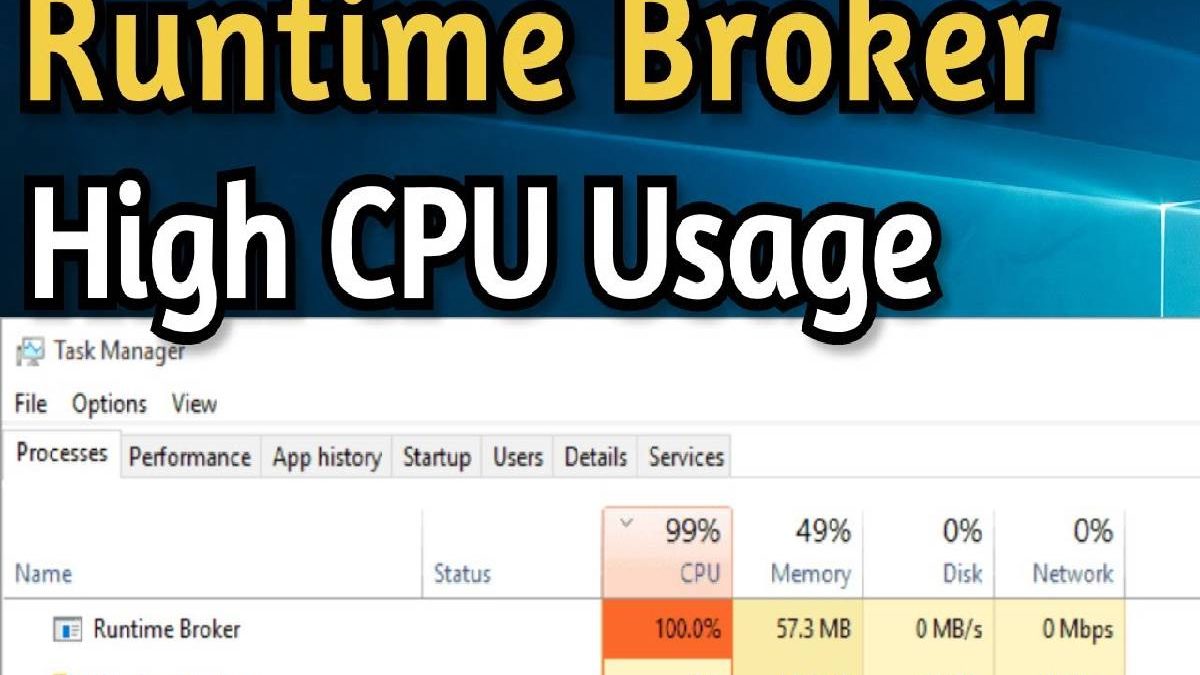Microsoft introduces the Runtime Broker process (RuntimeBroker.exe) in Windows 8, and it kept using it in Windows 10.
Also, Runtime Broker is a legitimate Windows process, but one with a bad reputation for increasing CPU load and memory usage on systems sporadically.
And if you monitor the Windows Task Manager by loading it with Ctrl-Shift-Esc, for instance. And if you use the extra advanced process monitor like Process Explorer. Also, you can take noticed already that Runtime Broker is not active all the time.
If you watch extra closely, you can notice that it is linked somehow to Universal Windows Apps. And (those installed from Windows Store came with the operating system and sideloaded apps).
And you find Runtime Broker listed under processes and details when you open the Windows Task Manager on Windows 10.
Also, note that the Windows 10 Task Manager separates processes into apps and background processes. It depends on the status of Runtime Broker, And you can find it listed under either one there. For a clearer picture, switch to details and locate it there.
And since it is linked to Universal Windows Apps, you notice that it becomes active whenever you start one of these applications on your device.
And it provides you with a little bit more detail: The main task of Runtime Broker is to check if these applications take declares all it requires permissions and to inform you about it.
So, it acts as the security middleman between the app and your data and hardware on the device.
Why is it causing a high CPU load?

Reports started to come up as early as 2015 that Runtime Broker and it causing high CPU loads on Windows 10, and as early as 2012, it was using a lot of memory on Windows 8.
Also, it can use a lot of memory, especially if a faulty app is the root cause of the issue:
And it is a Windows process in Task Manager that helps manage permissions on your PC for apps from Windows Store.
It must only use a few megabytes of memory, but a faulty app might cause Runtime Broker to use up to a gigabyte of RAM or more in some cases.

